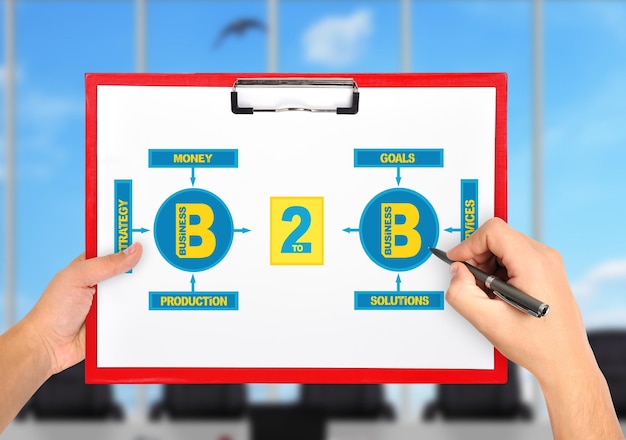Tax Season Survival: Maximize Deductions & Credits for 2025

Tax season survival for US taxpayers in 2025 hinges on understanding and strategically leveraging key deductions and credits to minimize tax liabilities and optimize financial outcomes.
Navigating the tax season can feel like traversing a complex maze, but with the right knowledge, you can emerge victorious. This guide focuses on **Tax Season Survival: Key Deductions and Credits for US Taxpayers in 2025**, helping you understand how to minimize your tax burden and maximize your return.
Understanding the US Tax System in 2025
The US tax system is based on a progressive model, meaning the more you earn, the higher the tax rate you pay. However, various deductions and credits exist to help mitigate this burden. Understanding the basics of the system is crucial before diving into specific deductions and credits applicable for the 2025 tax year.
Tax Brackets and Rates
Tax brackets determine the percentage of tax you pay on each portion of your income. These brackets are adjusted annually, so staying informed about the latest rates is important.
- Understand how different income levels are taxed at different rates.
- Be aware of how changes in income can affect your overall tax liability.
- Utilize tax planning strategies to potentially lower your taxable income.
It’s essential to consult the IRS website or a tax professional for the most up-to-date tax bracket information, as rates can change yearly and differ based on your filing status (single, married filing jointly, head of household, etc.).
Understanding the US tax system is the first step in ensuring you get the most out of your tax return. With careful planning and awareness of available deductions and credits, you can navigate tax season with confidence. Remember to consult with a professional for personalized advice.
Key Tax Deductions for Individuals
Tax deductions lower your taxable income, ultimately reducing the amount of tax you owe. Several deductions are available to individuals, and maximizing these can significantly impact your tax liability.
Standard Deduction vs. Itemized Deductions
You generally have a choice between taking the standard deduction or itemizing your deductions. The standard deduction is a set amount based on your filing status, while itemizing involves listing out individual deductible expenses. Choose whichever method results in a lower taxable income.

For those with significant deductible expenses like mortgage interest, medical expenses, or charitable contributions, itemizing may be more beneficial than taking the standard deduction. Weigh your options carefully and keep detailed records.
Understanding key tax deductions and choosing the right method – standard or itemized – will give you a good start to optimizing your tax return. Don’t hesitate in consulting a tax expert to guide you during the process.
Maximizing Tax Credits for a Bigger Refund
Tax credits are even more valuable than deductions because they reduce your tax liability dollar-for-dollar. Several credits are available, especially for those with lower to moderate incomes or specific qualifying expenses.
Child Tax Credit
The Child Tax Credit provides a significant tax benefit for families with qualifying children. Understanding the eligibility requirements and credit amount is vital.
- Check the age and relationship requirements for qualifying children.
- Determine the maximum credit amount you’re eligible for.
- Be aware of any income limitations that may apply.
The Child Tax Credit is a valuable benefit for families; make sure you understand if you qualify to leverage the benefits and reduce your tax burden. Requirements can shift from year to year, so keep yourself informed.
Tax credits are invaluable tools for reducing your tax liability, potentially leading to a larger refund. Thoroughly explore all applicable credits to ensure you’re not leaving any money on the table.
Home-Related Tax Benefits
Homeownership often comes with several tax advantages. Understanding these benefits can help homeowners offset some of the costs associated with owning a home.
Mortgage Interest Deduction
Homeowners can typically deduct the interest they pay on their mortgage, up to certain limits. This can significantly reduce taxable income.
The mortgage interest deduction is a significant benefit for homeowners that shouldn’t be overlooked. Consult with your lender or a tax advisor to fully understand how it applies to your situation and to maximize its impact on your tax return.
Home-related tax benefits can provide considerable relief for homeowners. Familiarize yourself with these benefits to optimize your tax strategy and minimize your tax liability.
Education-Related Tax Breaks
Investing in education, whether for yourself or your children, can come with tax benefits. These breaks aim to alleviate the financial burden of higher education.
American Opportunity Tax Credit (AOTC) and Lifetime Learning Credit (LLC)
The AOTC and LLC are two popular education credits that can help offset tuition expenses. Each has its own eligibility rules and benefits, so it’s essential to understand the differences.

Deciding between the AOTC and LLC depends on individual circumstances. Consult with a tax professional to determine which credit best suits your situation and provides the greatest tax benefit.
Education-related tax breaks can help ease the financial strain of pursuing higher education. Take the time to explore these options and potentially lower your tax bill.
Retirement Savings Contributions and Taxes
Saving for retirement not only secures your future but also offers potential tax benefits in the present. Understanding how retirement contributions affect your taxes is key.
Traditional IRA vs. Roth IRA
Traditional and Roth IRAs offer different tax advantages. Contributions to a traditional IRA may be tax-deductible, while withdrawals in retirement are taxed. Roth IRA contributions are not deductible, but qualified withdrawals in retirement are tax-free.
Choose the retirement savings plan that aligns with your long-term financial goals and tax situation. Consulting with a financial advisor can help you make the most informed decision.
Careful retirement planning, taking into account the tax implications of different savings options, can set you up for a financially secure future while also providing immediate tax benefits.
Tax Planning Tips for 2025
Proactive tax planning can help you minimize your tax liability and maximize your refund. Here are some tips to consider throughout the year.
Keep Accurate Records
Maintaining detailed records of income, expenses, and deductions is crucial for accurate tax preparation. This includes receipts, invoices, and other relevant documents.
- Use accounting software.
- Create digital folders.
- Consult a tax professional.
These tips are crucial to get the maximum benefit of your tax refund. Consult with a financial advisor for guidance during the year.
Effective tax planning requires a proactive approach and ongoing attention. By implementing these tips and seeking professional advice, you can optimize your tax strategy and minimize your tax burden.
| Key Area | Brief Description |
|---|---|
| 💰 Deductions | Reduces taxable income: standard vs itemized deductions. |
| 👶 Child Tax Credit | Credit for families with qualifying children. |
| 🏠 Home Benefits | Deduct mortgage interest from taxes. |
| 🎓 Education | Credits like AOTC and LLC available. |
Frequently Asked Questions
▼
The standard deduction amount is annually adjusted by the IRS. For the most accurate info for 2025, check the IRS website directly. It depends on your filing status such as single, married filing jointly etc.
▼
Itemize if your total deductible expenses (like medical bills, donations, and mortgage interest) exceed the standard deduction. Calculate both scenarios to determine the option that minimizes your tax.
▼
The American Opportunity Tax Credit(AOTC) covers tuition, fees, and course materials needed for a student’s first four years. The student must be pursuing a degree or another credential.
▼
You can deduct contributions to a traditional IRA if you meet certain requirements. The deduction may be limited if you or your spouse are covered by a retirement plan at work.
▼
If you made a mistake, file an amended tax return (Form 1040-X) to correct the error ASAP. Consult a tax professional for support to avoid penalties from the IRS.
Conclusion
Being prepared for tax season is essential for every US taxpayer in 2025. By understanding and strategically utilizing available deductions and credits, you can optimize your tax outcome and financial well-being. Keep accurate records, remain informed of changes in tax laws, and seek professional guidance for personalized advice.





